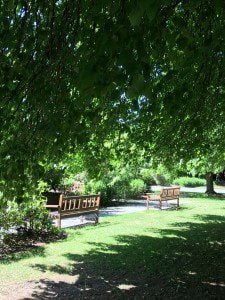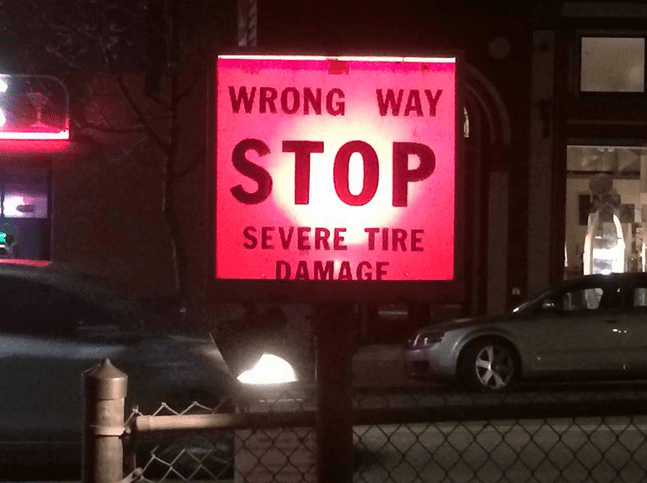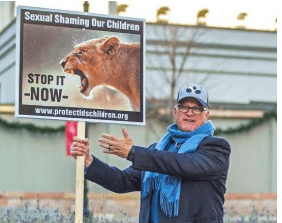 In anticipation of a television interview I gave for TV3’s “The Nation” (airing this weekend), I prepared some answers to the reporters pre-interview questions. Its likely that only a fraction of what I said will make it into the segment so I thought I’d share some of my initial thoughts here. Its also remotely possible that they might cut and paste my comments to death, so just for the record here’s what I tried to say.
In anticipation of a television interview I gave for TV3’s “The Nation” (airing this weekend), I prepared some answers to the reporters pre-interview questions. Its likely that only a fraction of what I said will make it into the segment so I thought I’d share some of my initial thoughts here. Its also remotely possible that they might cut and paste my comments to death, so just for the record here’s what I tried to say.
What does your faith means to you?
Mormons feel very tender about their faith because the religion has so many ways in which it brings us into conversation about the divine that characteristically generates strong convictions. There are numerous touch stones throughout ones ‘Mormon’ life that build a belief and a faith that feels good, comfortable, warm, and like coming home. It begins with the church’s facility at raising wonderful people who care. I grew up in this place where only now those whose faces I have known for my entire life are gradually passing away. These are the same people who embraced and believed in a newly converted teenage unmarried mother and accepted her and her brown daughter. These are also the people who have loved me for a life-time, who know me, accept me, have cared for me and helped my mother raise me. I will be forever indebted to a religion that grows that kind of compassionate capacity.
Growing up in the church I recall songs, teachers, activities, rituals of prayer, giving talks, sharing scriptures, primary, youth, testimony meetings, commandments, stories, silver rings that bear the green shield reminding me to CTR (Choose the Right). All of these experiences upon reflection flood me with a sense of indescribable goodness and belonging.
But more importantly, the experience that transcends them all is the moment that I felt I knew Christ in a way that was so profound and important that it utterly changed my life. I’m not going to say that this experience of being born again is unique to Mormonism, because clearly it isn’t, but in my experience it is within the context of this church that I had this ‘conversion’ and that is why I stay.
The parts of Mormonism you question
Without question it would be the place of women in the church. On the one hand Mormonism offers women this glorious theology where we grow up talking about a Heavenly Mother, the worth of our souls as a daughters of God, our potential to be magnificent, and to be better than the world expects of us. On the other hand, I’ve felt keenly the over emphasis on developing, growing and investing in the male priesthood who will eventually run the church. As a young woman I frequently wondered if God had a purpose for me aside from homemaking and motherhood. All the while boys in the church are groomed for domestic, and international ecclesiastical leadership and are encouraged to be ambitious, educated and career minded. This has lead many (but not all) men in my experience to behave like an impenetrable enclave with too much decision making power and with little in the way of accountability to, or even consultation with women. I think that that lack of inclusion diminishes both genders and creates a culture that is out of step with the potential for both genders to be great together. I get a sense that unless the church reconciles this issue there may be significant problems facing forward.
Women are confronting one of the most challenging times in the church. The church is out of step with the capacity of women to make a significant contribution to the church. We have a church brimming with women who are well educated, successful business, educational, health professionals and civic leaders, but we don’t see them – that part of ourselves is rendered invisible in churched spaces. The curriculum for adolescent girls hasn’t been updated in many years and the emphasis is still squarely placed on their future roles in domestic spheres. What if they don’t find themselves a Mormon husband, or they are gay, or prefer a career to homemaking? My concern is that they risk feeling out of step with the dominant discourse of their faith tradition and the inevitable tendency is to disengage.
Your blog – why did you start it? What is the response you have received from different parts of the Mormon community, former Mormons and non-Mormons?
First of all there is strong encouragement from the leaders of the church for its members to be present in the public sphere, and my sense is that they are wanting us to humanize the Mormon story. The ‘I am a Mormon’ campaign has tried to show that Mormons are not as shut down as Mitt Romney nor as frightening as Glen Beck. While many Mormons might indeed have rich and satisfying church lives at the same time we also grapple and wrestle with our spiritual and religious selves. This all the while trying to lead normal workaday lives. I get a sense that perhaps my kind of blog wasn’t necessarily what they had in mind but aside from a couple of initial panicked flurries they’ve been respectful and quiet.
The other reason I began this blog is that despite the fact that there are more Mormons outside of the US than in, the narrative weight of the church still resides in the US. I wanted to say publicly that there are Mormons in the world outside of the United States and we are having experiences just as worth writing about and talking about than you Americans. I knew that initially my largest audience for this stuff would be the US and I really wanted to make clear that the American Mormon experience might be similar to the New Zealand experience but it is not universal. Those of us outside the US have a story of our own. Interestingly when Mormonism is domesticated in other cultural and political contexts it happily sloughs off some of those tensions it acquires in the US context. For instance the hard ideological line that exists between democrat Mormons and Republican Mormons is redundant outside of the US. The complete lack of transparency in the US church’s financial accounting doesn’t exist in New Zealand and elsewhere where our annual returns are public. I do get a sense that if progressive US Mormons want a cultural or even an ideological shift in the church one of the places to find an impetus, a rationale and an important perspective is outside the US. At the same time those of us at the periphery need to be confident enough to talk back to, and with the centre.
The response has been great. Non-Mormons regularly contribute on the message boards and often affirm that the Mormon experience is not so different from their own experiences. Most of my audience is American, but increasingly I’m seeing a growing number of hits from the periphery of the church which is heartening.
Mormons have been historically represented very poorly in the media (including in the New Zealand media) over the years. I understand why, but the response of the church leaders has often not helped. Until recently anything said by anyone in the media had to have an official sanction. Endless white dudes wearing conservative suits giving narrow and unsatisfactory marketing statements is not a way to win hearts and minds. The stories of everyday Mormons who get up in the morning, argue with their spouse, get frustrated with non-compliant children, worry about death and aging, who struggle to pay their bills, who can’t find someone to marry, who are gay, struggle with being good – these are the stories that warm and connect with people – not sterile happy family stories where everyone is oh so perfect. For Mormons, our imperfections and our vulnerabilities are our reality. Yes, we have some idiosyncratic beliefs, yes we come from terrified American fugitive culture, yes we a blessed with a rich cradle to grave faith tradition, but as it shakes down – we’re regular folks with the range of life challenges that face everyone.
At the same time we have a wonderful tradition of discussion and conversation where we regularly grapple with the big existential questions: Where did I come from? Why am I here? Where am I going after this life? Of course we are not unique in this quest for meaning, and we are not the only faith tradition that answers these questions with grace and beauty, but inasmuch as we have adherents in the millions it would indicate that its central message resonates with many people and just might not justify the vitriole it tends to get.
What is the relationship between Americanism and Mormonism?
At times it is often difficult to gauge where Americanism begins and Mormonism ends. This is inevitable because it’s an indigenous American religion. So naturally we inherit a lot of their cultural baggage. Much of our central leadership are white Americans, our curriculum materials are written in the US, and at times those materials and discourses make assumptions that resoundingly echo with certain cultural trajectories that don’t belong here. Having said that though, Mormons are wedded in both a metaphysical and in a real way to the United States. Just as Anglicans are in a relationship with England, and Catholics to Rome, Muslims to Mecca and Jews to Jerusalem – we are no different in that we have have a place to look to or to gravitate towards. But one of the issues with our place of gravitational pull being America is with its noticeable tendency towards ethnocentrism and a general lack of self-consciousness that the story of America is not the world’s story.
What about New Zealand cultural identity and Mormonism?
Part of our ‘growing up’ as a religion involves letting the religion domesticate and settle at the periphery without the white knuckled concern that characterizes some of the rhetoric that has come from US leaders. I grew up listening to Boyd K Packer express a palpable fear that the church would take on a different, even an unrecognizable rhythm and personality that would set it apart from the American mainstream. This fear has been conflated with the rhetoric of apostasy, suggesting that a church that didn’t look like, behave look and sound like the American church had gone into the ditch.
But the church is at a cross-roads between maintaining a centrally organized, stable institution, and allowing it to take on a local flavour that makes it relevant and inviting. That tension is not helped by the fact that while US missionaries are taught to be ‘tolerant’ and even ‘respectful’ as they evangelize in non-American spaces, they aren’t taught well how to be ‘intercultural’, to question their own cultural assumptions, to know the difference between gospel and culture, to allow themselves to be changed and informed by their experience, and to take some of those lessons home as more than quaint or entertaining anecdotes.
At the same time out here in New Zealand we need to develop the confidence to allow all of ourselves through the church doors and to question the appropriateness of some of those churched cultural practices and assumptions that we have inherited from the US. One of the issues of course is that we still suffer (at least in this respect) from colonial cringe. That I am a New Zealander, Maori, a woman, a feminist, an academic will not sit well with many people who are used to hearing Mormonism in the public sphere as something defined by those with institutional permissions. For many, many New Zealand Mormons out there I will be speaking a different language and that does/will cause a lot of questions, concerns and even indignation. I have no doubt that I am or will be thought of as presumptuous, apostate, unbelieving and antithetical to the very fabric of Mormonism because my message about Mormonism doesn’t come with the kind of hyperbolic moralizing and unmitigated corporate loyalty that characterizes the ‘official’ word. I’m comfortable about living with that criticism. If nothing else it will cause Mormons to think – even if in thinking it leads them to different conclusions other than my own.











